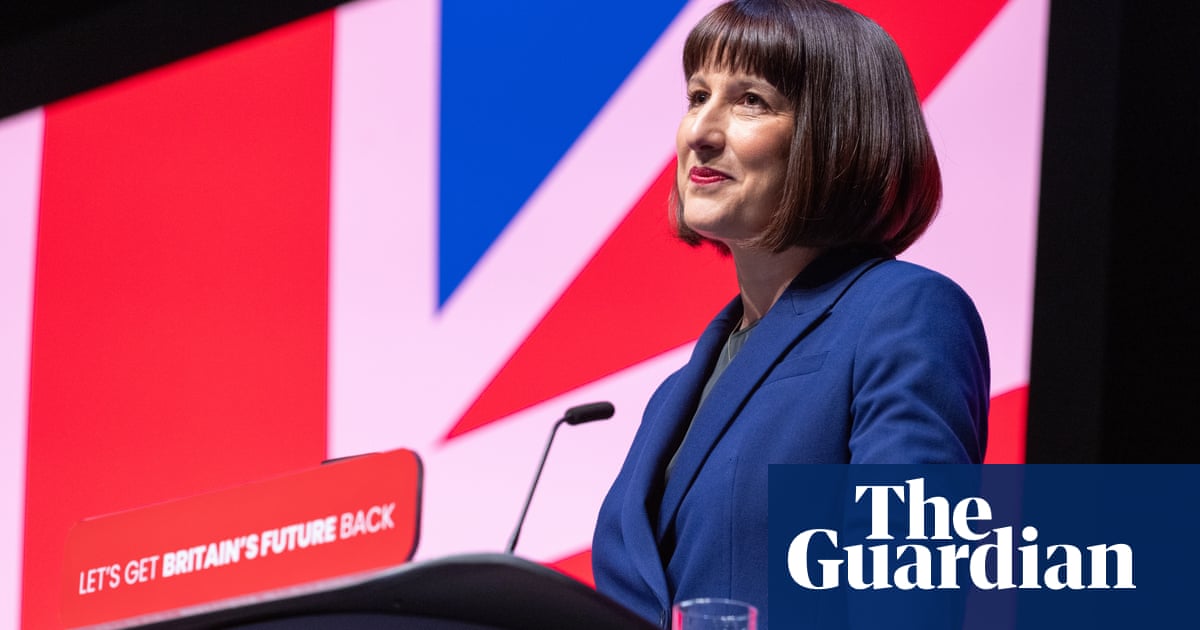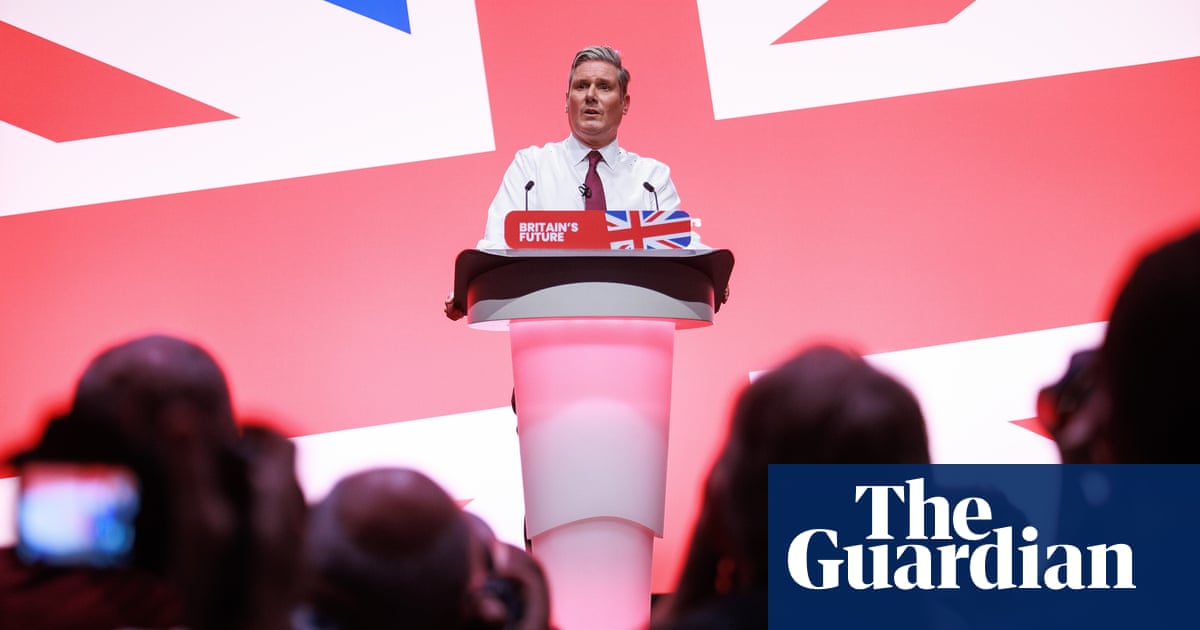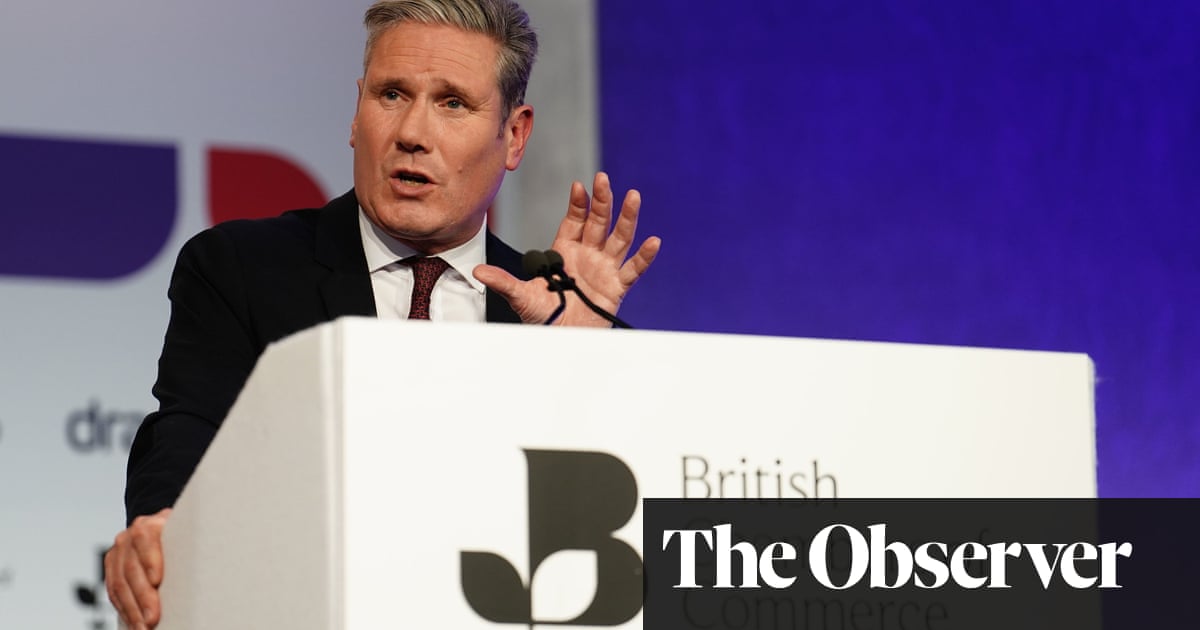
At every turn in Labour’s annual conference in Liverpool, there are signs of big business on manoeuvres. Exhibition stands for Google, Ineos and Specsavers; slick videos for Amazon and Uber, fringe events sponsored by Deliveroo and Goldman Sachs, while even the parliamentary lounge – a retreat for MPs from the throng of 16,000 delegates – was sponsored by Lloyds Banking Group.
Labour was keen to demonstrate economic credibility by basking in the presence of company bosses. For business leaders, it was a chance to check out a potential government in waiting, with many commenting on the marked contrast with the Conservative conference in Manchester.
The shadow chancellor’s “securonomics” slogan may not win any political campaign awards, but it has landed with industry.
“I’m very impressed by Rachel Reeves. She seems extremely competent,” says Stephen Phipson, the chief executive of the manufacturing trade group Make UK.
“What we’ve seen from the Labour party is a really strong commitment to making things in this country. We never saw that last week at the Tory conference. The whole thing about stability – it was perfect. We have been calling for this for years.”
Here are five key conference takeaways for business:
1. Labour is open for business
Bookending Reeves’s speech with endorsements from shops guru Mary Portas, and former Bank of England governor Mark Carney, marked a statement of intent from the shadow chancellor. Carney’s video message in particular resonated with business leaders. “It shows they are serious. It has not gone unnoticed,” said one senior executive from a large insurance business.
Company bosses gathered for a meal in Liverpool’s famous Liver Building hosted by the City of London Corporation on Monday night, with Peter Mandelson – an ever-present figure this year – addressing the room to cement relations. Also present at conference were bosses from Shell, Taylor Wimpey and the insurer Lloyd’s of London.
2. Reeves is opposed to tax increases
Reeves had set the tone for the conference earlier this year, after ruling out wealth taxes and promising a review of business tax. Labour has also committed to reforming business rates – a key demand made by industry groups. Portas welcomed this in particular, saying it would be a powerful tool for helping struggling high streets.
The shadow chancellor used her speech to say Labour could not “tax and spend” its way to growth, saying instead that she wanted to “tax fairly and spend wisely”.
Her reluctance to raise taxes on wealth is unpopular on the Labour left and among trade unions, who have been pushing for the rate at which capital gains are taxed to be increased in line with the taxes on salaries and other income.
However, she told an event with Jim O’Neil, the crossbench peer and former Goldman Sachs chief economist, that it was important to incentivise entrepreneurs and businesses to invest in the UK.
“We don’t plan a wholesale equalisation of income tax and capital gains. We think it is important to create the incentives to invest in UK businesses, to help create businesses, to help grow businesses, and to have preferential tax treatment in doing that.”
3. … and backs spending discipline
To underline Labour’s “ironclad” approach to sustainable tax and spending, Reeves announced reforms to strengthen the Office for Budget Responsibility, the government’s tax and spending watchdog. The measure received a loud round of applause in Reeves’ speech – a perhaps unexpected response for a dry policy change.
Labour would pay for day-to-day spending through tax receipts, get debt down as a share of the economy, and then, “subject to that, invest in things that boost the potential of the economy”, she said. As part of spending money wisely, Reeves announced a review of HS2 cost overruns, a Covid corruption commissioner, and limits on ministers travelling by private jet.
4. Business investment is a Labour priority
Labour plans an £8bn “national wealth fund” designed to coinvest public money alongside the private sector, with a focus on renewable energy and new technologies. Reeves said that for every £1 of public money spent, Labour wanted £3 from the private sector to ensure the state gets “bang for your buck”.
The plans are based on Joe Biden’s Inflation Reduction Act, and aim to “de-risk” private sector investment in emerging technologies.
Business leaders are broadly supportive, but details remain vague.
5. Starmer wants to build, not block
The cancellation of HS2 by Rishi Sunak angered many business leaders, but Labour failed to offer a firm promise to reinstate the high-speed rail line from Birmingham to Manchester. Instead, it used Sunak’s decision to highlight the government’s inability to build large infrastructure projects.
With a large contingent from the rail industry at the conference, many business leaders were disappointed by the lack of a firm commitment to HS2. “It’s very frustrating,” said one senior industry figure. “The conversation is all about costs and not the missed £100bn a year economic upside.”
However, Keir Starmer sought to position Labour as a party to “rebuild Britain”, announcing a raft of promises to “bulldoze” through the planning system to enable 1.5m new homes and the “next generation of Labour new towns”. Housing and property bosses welcomed his words: “We are encouraged by the moves which seek to deliver short, medium and long-term changes to unblock and reform the planning system,” says Greg Fitzgerald, the chief executive of housebuilder Vistry.
Sir Nigel Wilson, group chief executive at Legal & General, says: “We welcome Labour’s approach, which seeks to take a holistic view of these barriers to deliver ambitious outcomes.”












